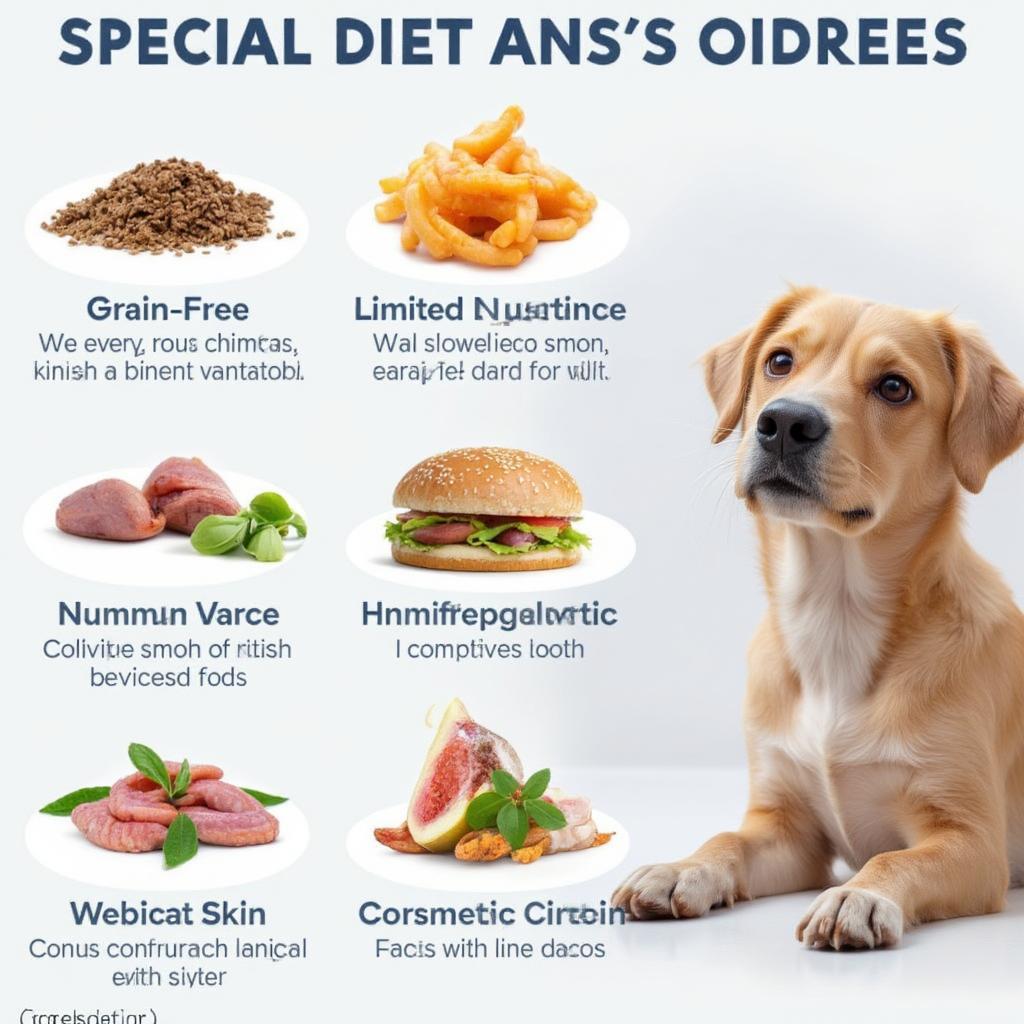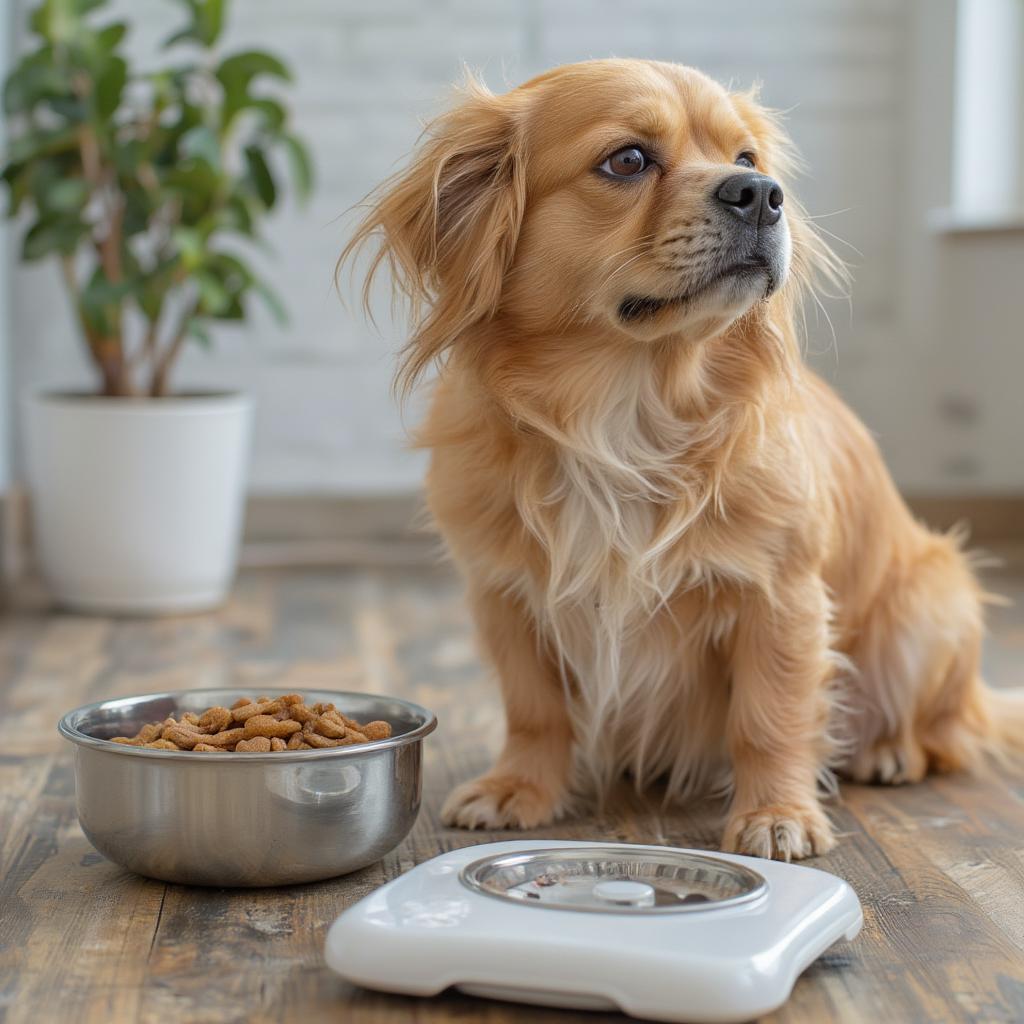Choosing the best dog food for your furry friend can feel overwhelming with so many options available. This guide will equip you with the knowledge to make informed decisions about your dog’s nutritional needs, ensuring a happy and healthy life for your canine companion. We’ll explore various factors, from life stage and breed size to specific dietary requirements and budget considerations.
Understanding Your Dog’s Nutritional Needs
Just like humans, dogs require a balanced diet to thrive. This includes proteins, fats, carbohydrates, vitamins, and minerals. However, the specific proportions of these nutrients vary depending on several factors.
Life Stage: Puppy, Adult, or Senior?
A puppy’s nutritional needs differ significantly from those of an adult or senior dog. Puppies require higher levels of protein and fat to support rapid growth and development. Adult dogs need a balanced diet to maintain their energy levels and overall health. Senior dogs often benefit from lower calorie and fat content with increased fiber to aid digestion and maintain a healthy weight.
Breed Size: Small, Medium, or Large?
Breed size also plays a crucial role in determining the best dog food. Small breeds have higher metabolisms and require more calorie-dense food. Large breeds are prone to joint issues and may benefit from food formulated for large breed dogs with ingredients that support joint health. Medium breeds typically fall somewhere in between.
Activity Level: Couch Potato or Marathon Runner?
A highly active dog will require more calories than a less active dog. Working dogs, sporting breeds, or dogs that participate in regular intense exercise need food with higher levels of protein and fat to fuel their activities.
Decoding Dog Food Labels
Understanding dog food labels is essential to choosing the right food. Look for the following:
- Ingredient List: The first ingredient should be a named meat source, such as chicken, beef, or lamb. Avoid foods with generic terms like “meat by-products.”
- Guaranteed Analysis: This provides the minimum percentages of crude protein, fat, fiber, and moisture.
- Nutritional Adequacy Statement: This statement indicates whether the food meets the nutritional requirements established by the Association of American Feed Control Officials (AAFCO).
- Feeding Guidelines: While a good starting point, adjust the amount based on your dog’s individual needs and activity level.
Types of Dog Food: Dry, Wet, Raw, and Homemade
- Dry Kibble: Convenient, affordable, and comes in various formulations.
- Wet Canned Food: Often more palatable for picky eaters and contains higher moisture content. best dog food for stomach issues could be helpful for those looking for wet food options.
- Raw Food: Consists of uncooked meat, bones, and vegetables. Requires careful handling and preparation to avoid bacterial contamination.
- Homemade Food: Allows for complete control over ingredients but requires thorough research to ensure nutritional balance. best dog food recipes for small dogs provides some great starting points if you are considering this route.
Common Dietary Concerns and Specialized Dog Food
Many dogs require specialized diets due to allergies, sensitivities, or specific health conditions.  Special Diet Dog Food for Allergies
Special Diet Dog Food for Allergies
- Food Allergies: Common allergens include beef, chicken, wheat, corn, and soy. Look for hypoallergenic or limited ingredient diets.
- Sensitive Stomach: Opt for easily digestible foods with prebiotics and probiotics.
- Weight Management: Choose low-calorie, high-fiber foods to help your dog lose or maintain a healthy weight. You might also want to research best oral treatment for fleas on dogs as parasites can sometimes contribute to weight issues.
- Joint Health: Look for foods with glucosamine and chondroitin to support joint health, especially for large or senior dogs. hill’s science diet adult healthy mobility large breed is a specific example you might want to research.
What is the Best Dog Food for My Dog?
The Best Dog Food For Your Dog depends on their individual needs. Consider their life stage, breed size, activity level, and any specific dietary requirements.
“Always consult with your veterinarian,” advises Dr. Emily Carter, DVM, “They can help you determine the most appropriate diet for your dog’s specific needs and health conditions.”
Making the Switch to a New Dog Food
Introduce new food gradually to avoid digestive upset. Start by mixing a small amount of the new food with the old food and gradually increase the proportion of new food over several days.
Conclusion
Choosing the best dog food is a crucial aspect of responsible dog ownership. By understanding your dog’s individual needs and decoding dog food labels, you can provide your furry friend with the nutrition they need to thrive. Don’t hesitate to consult with your veterinarian or a certified canine nutritionist for personalized recommendations. Remember, a healthy diet is the foundation for a long and happy life for your beloved companion.
FAQs
- How often should I feed my dog?
- What are the signs of food allergies in dogs?
- Can I give my dog human food?
- How much water should my dog drink per day?
- What should I do if my dog is a picky eater?
- Is grain-free dog food always better?
- How can I tell if my dog is overweight?
 Overweight Dog and Weight Management
Overweight Dog and Weight Management
“Remember, every dog is unique,” adds Dr. Sarah Miller, PhD in Animal Nutrition, “Tailoring their diet to their individual needs is key to optimal health and well-being.” If you are considering adopting an older dog, researching senior animal rescue near me can be a wonderful way to provide a loving home for a senior pet.
